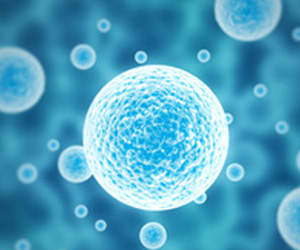Antibody-dependent cellular cytotoxicity (ADCC) is a mechanism of cell-mediated immune defense whereby an effector cell of the immune system kills a target cell, whose membrane-surface antigens have been bound by specific antibodies. It is one of the mechanisms through which antibodies, as part of the humoral immune response, can act to limit and contain infection.
How does ADCC work?
ADCC involves three main components:
- Antibodies: Antibodies are proteins that bind to specific antigens on the surface of target cells.
- Effector cells: Effector cells are cells that can kill target cells. The main effector cells involved in ADCC are natural killer (NK) cells and macrophages.
- Fc receptors: Fc receptors are proteins on the surface of effector cells that bind to the Fc region of antibodies.
When an antibody binds to an antigen on the surface of a target cell, it creates a bridge between the target cell and an effector cell. The Fc receptor on the effector cell then binds to the Fc region of the antibody, which triggers the effector cell to kill the target cell.
The process of ADCC
The process of ADCC can be divided into three phases:
- Binding of antibodies to target cells: Antibodies bind to specific antigens on the surface of target cells. This binding is specific and only antibodies that match the target cell's antigens will bind.
- Binding of effector cells to antibody-coated target cells: Effector cells bind to antibody-coated target cells via their Fc receptors. This binding is not as specific as the binding of antibodies to target cells, and effector cells can bind to target cells that are coated with a variety of different antibodies.
- Killing of target cells: Once effector cells have bound to antibody-coated target cells, they release a variety of chemicals that kill the target cells. These chemicals include perforin, granzymes, and tumor necrosis factor-alpha.
ADCC in the immune system
ADCC is an important part of the immune system's defense against infection. It is particularly effective against cells that are infected with viruses or bacteria, as well as cancer cells. ADCC is also involved in the clearance of immune complexes, which are clumps of antibodies and antigens that can form in the blood.
ADCC and cancer therapy
ADCC is being investigated as a potential therapy for cancer. Monoclonal antibodies, which are highly specific antibodies that can be produced in the laboratory, are being developed that can target specific cancer cells. These antibodies can then be used to activate ADCC, killing the cancer cells.
ADCC and other diseases
ADCC is also being investigated as a potential therapy for other diseases, such as HIV infection and autoimmune diseases. In HIV infection, ADCC can be used to kill infected cells before they can replicate. In autoimmune diseases, ADCC can be used to kill cells that are attacking the body's own tissues.
Conclusion
ADCC is a complex and important mechanism of the immune system. It plays a role in the defense against infection, cancer, and other diseases. ADCC is being investigated as a potential therapy for a variety of diseases, and it is a promising area of research.
If you are researching ADCC, contact SBH, our cell-based assay capability is the most comprehensive worldwide. We currently offer over 330 bioassays and comprehensive Cell Based Assay Services.


